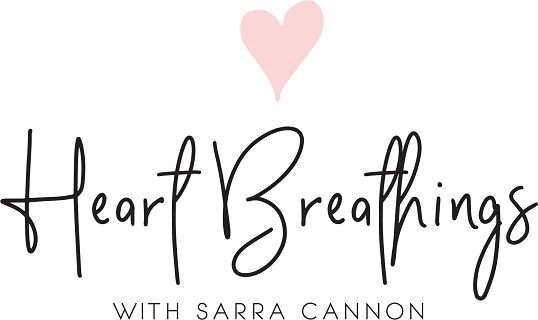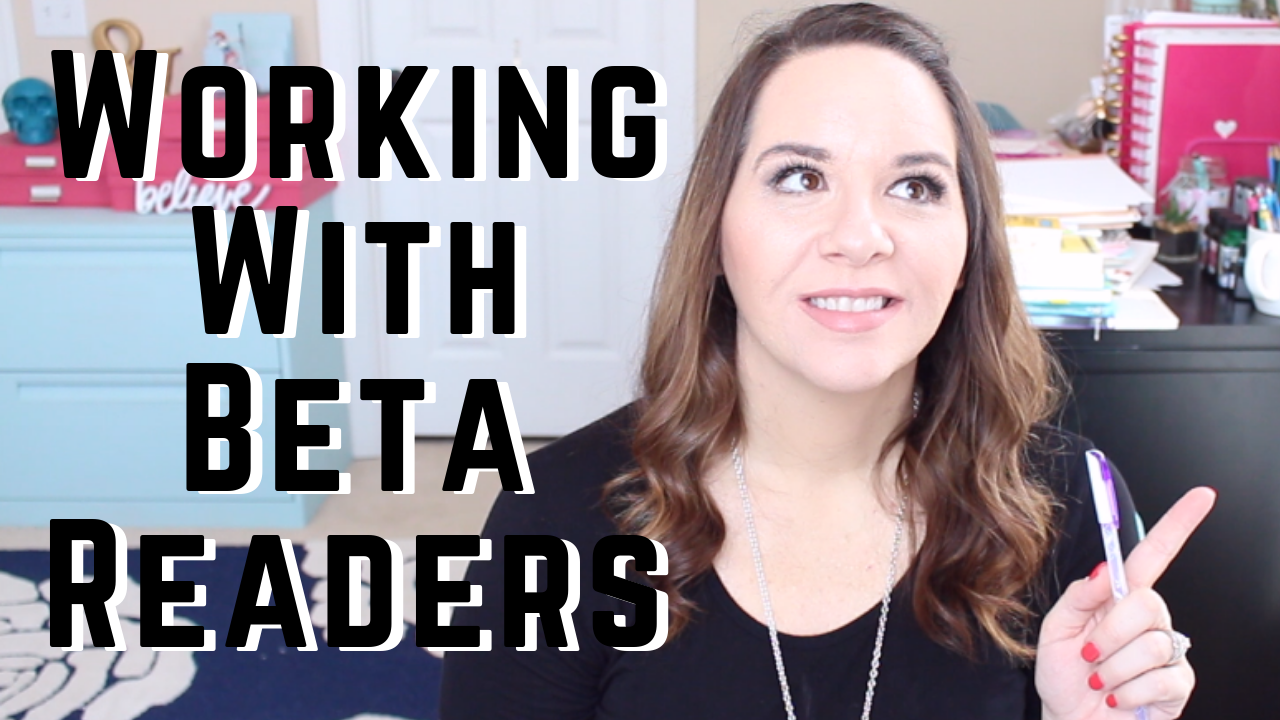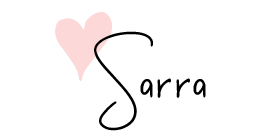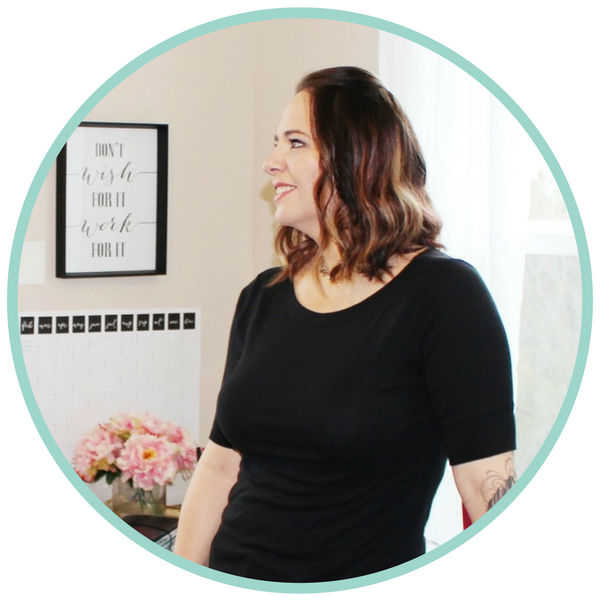

May 30, 2019 by Sarra Cannon
Welcome back to my 6-part series on How To Edit Your Novel. Today, we are going to talk about beta readers. What do they do for you? How do you find them? Do you pay them? I’ll be answering all your most burning questions.
Part 1: Self-Edits
Part 2: Types of Professional Edits (And Associated Costs)
Part 3: Beta Readers
Part 4: My Recommended Books On Editing
Part 5: How To Know When Your Edits Are Complete
Part 6: How I Organize My Edits
A great beta reader is going to give you valuable feedback on your novel from a reader’s perspective.
Most beta readers will let you know what they thought of your characters, whether the story was believable or not, whether they were surprised by the ending, if they found any confusing parts or awkward sentences, and more.
Many times, beta readers will also point out missing words or typos they find as they are reading, but please don’t expect a beta reader to take the place of your professional proofreader or editor! Beta readers are usually not trained in grammar or sentence structure. They are simply readers with a keen eye for storytelling.
The best beta readers will also be widely read in your chosen genre, so they will be familiar with genre expectations, as well as tropes or pitfalls.
A beta reader who simply reads your novel and tells you it was great might be a nice boost to your ego, but they are not really serving you as a beta reader. You want someone who will be able to give constructive criticism without being mean. That’s your ideal.
In many cases, a beta reader is only as good as your instructions to them. If you just hand your book off to someone and don’t give them any idea or guidance on what you’re looking for from them, don’t expect great feedback.
One of the best things you can do to make sure you’re getting the best possible feedback from your betas is to give them a list of what you are looking for from them. Too much and you might overwhelm them, but you do want to give them some form of guidance or questions to answer as they read through.
If you’d like a good list of sample questions to ask your beta readers, be sure to download my free editing series guide.
It will serve you well to have a list of questions ready for your betas about whether they liked your heroine, if they believed the story, if they found anything confusing, whether the ending surprised them, and more.
This is one of the most-asked questions about beta readers, and there’s no simple, one-answer-fits-all solution. I found my beta readers by interacting with my fans and paying attention to the fans who had great feedback about the books. I also took the time to build personal relationships with my beta readers, which only increases their ability to give good feedback for each novel.
So, one possible solution is to look for beta readers among your existing fans. If you’re already published, where do you hang out to talk to your readers? Have you noticed some of the same names popping up over and over to discuss your latest novel? Consider reaching out to those people and seeing if they would be interested.
Of course, writers just getting started won’t have a fanbase to choose from yet, so how do new writers find beta readers?
This is trickier. You can pull from your friends, if you know people who actively read the genre you write, but working with friends can be tricky in itself. Especially if your friends are scared to hurt your feelings or if you’re particularly sensitive to criticism.
Sometimes, people find beta readers among their fellow authors in writing groups either online or in person. I think this can be a good solution when you’re just getting started, but I want to put in a word of warning about using fellow authors for betas.
Often, authors will want to interject their own writing style or opinions about how things should be written into your work. This can be confusing and even hurtful at times, which is why I caution you not to use fellow authors.
What you really want is readers who love your genre. Some of my suggestions for finding beta readers like this are to:
The bottom line is that it takes time. Yes, you could just send out blanket requests to lots of strangers and see who responds, but if these people don’t know you or anything about you, they might not be able to give the best feedback. Plus, if you have zero relationship with them at all, even online, they might not be trustworthy when it comes to getting your book back to you on time and with good feedback.
NOTE: Speaking of trustworthiness, I had someone ask if you should have beta readers sign an NDA (Non-Disclosure-Agreement). I can’t really give legal advice here as to whether you should, but I will say that almost no one I know asks their beta readers to sign an NDA. If you feel you need that extra piece of legal protection, that’s a decision you’ll have to make yourself!

This is another question that doesn’t have a hard and fast rule attached to its answer. I typically send my book to my beta readers when I’m finished with my own self-edits.
I edit very cleanly, though, with few typos and errors. If you know you have issues with self-editing, you may want to send your book to your line editor first, so that your beta readers aren’t bombarded with typos and awkward sentences while they are trying to read.
On the other hand, if you anticipate that you’re going to need to change your story or the actual content of your novel quite a bit once you get the book back from your beta readers, you might want to send it to them before you send the book off to a professional editor. (With the exception of a developmental editor if you’re using one. You’d definitely want to have worked with your developmental editor way before the beta reader stage!)
The proofreader should be the last person to see your novel, so I would definitely have put the book through beta readers before you send it out to a proofreader. Otherwise, if you make changes from your beta’s feedback (Which you probably will), you’d be changing the book and needing another proofreader to take a final look.
It fully depends on the beta readers and how long you give them to read the book! One tip I’d like to offer is to always send clear instructions to your betas about when you need the book to be returned to you.
Most people will give their beta readers at least two weeks to read through the novel. I’m perpetually behind on my schedule, so my poor beta readers usually only get a week. If you can, though, try to give them a minimum of two weeks to read. Not everyone can afford to just drop everything and read a novel at any moment’s notice.
Sometimes, if you have a long novel and you’re asking very detailed questions, you may even want to give them a full month to work on their beta feedback. More than that, though, and I think you are giving too much time.
The short answer is no. Most people do not pay their beta readers. At least not in cash.
Beta readers are compensated in a few different ways. They are given the chance to read the book before anyone else, which is really fun. They are also invited to be a part of your writing process, which is a great experience that a lot of readers find exciting. It’s a source of personal pride to say you helped an author make their book the best it could be, and many beta readers really enjoy being a part of the process.
That being said, it’s a really nice touch to offer a very heartfelt thank you when the work is done. You can do this through a letter or through something more physical like a signed paperback copy of the book.
It’s up to you how you want to compensate your beta readers, but I think industry standard is just to say thank you and let them know just how much you appreciate their time and effort.
Before we wrap up this discussion on beta readers, let’s talk for a minute about the beta reader process. Once you’ve chosen your beta readers (I typically have 4 per book, but there’s no accepted standard), you need to decide how you’ll be sending them your manuscript.
What you’ll want to do is think about how you want the feedback returned to you. Do you want everything on a physical copy with handwritten notes? Do you want them to use the commenting feature in Word or some other writing software?
Handwritten notes on a PDF is going to take you a very long time to go through, especially if you can’t read their handwriting! In addition to that, you’ll have to figure out some way to make sure the betas can print the book out (not everyone has a printer), and they’ll have to be able to mail it back to you. What a headache! Unless your betas are local to you and you see them often, I don’t recommend you do a hard copy.
On the other hand, you also shouldn’t assume everyone has access to something like Word or Open Office. Very few (if any) betas will have access to something like Scrivener. Some people don’t even have desktop computers or laptops. Take nothing for granted!
When you screen your beta readers, you might want to find out some of this information and make sure your chosen betas will have access to whatever program you want to use to receive feedback.
I personally use Google Docs with my beta readers, and I love it! It’s free and anyone can use it on pretty much any device with internet. In addition, I can have all of my beta readers working in a single file, so I don’t have to go back later and input changes from multiple sources.
I also love that betas can easily access the book from their tablet, phone, or computers without trouble. The commenting feature in Google Docs is great, and it’s easy for my beta readers to collaborate, see what comments someone else has given (so they don’t have to all catch the typos or mention them if someone else already has), and they can have discussions inside the document if they have different opinions about a section.
The other big bonus to having betas comment through Google Docs is that I don’t have to wait for them to be finished before I can start seeing their feedback and working through it. If they’ve all finished reading and commenting on Chapter One, I can start my revisions and notes right away, while they are reading Chapter Two, and so on. It makes the process smooth and quick, which I live for.
No matter what you use, just make sure you’ve put some thought into how you will deliver the manuscript to readers, how you want them to leave feedback, and how they will get it back to you.
I’d love to know what questions you have that I didn’t cover in today’s video and post. Let me know in the comments, and I’ll do my best to answer them for you!
Also, be sure to come back for the next part of this editing series!
Part 1: Self-Edits
Part 2: Types of Professional Edits (And Associated Costs)
Part 3: Beta Readers
Part 4: My Recommended Books On Editing
Part 5: How To Know When Your Edits Are Complete
Part 6: How I Organize My Edits


I have been self-publishing my books since 2010, and in that time, I've sold well over half a million copies of my books. I'm not a superstar or a huge bestseller, but I have built an amazing career that brings me great joy. Here at Heart Breathings, I hope to help you find that same level of success. Let's do this.